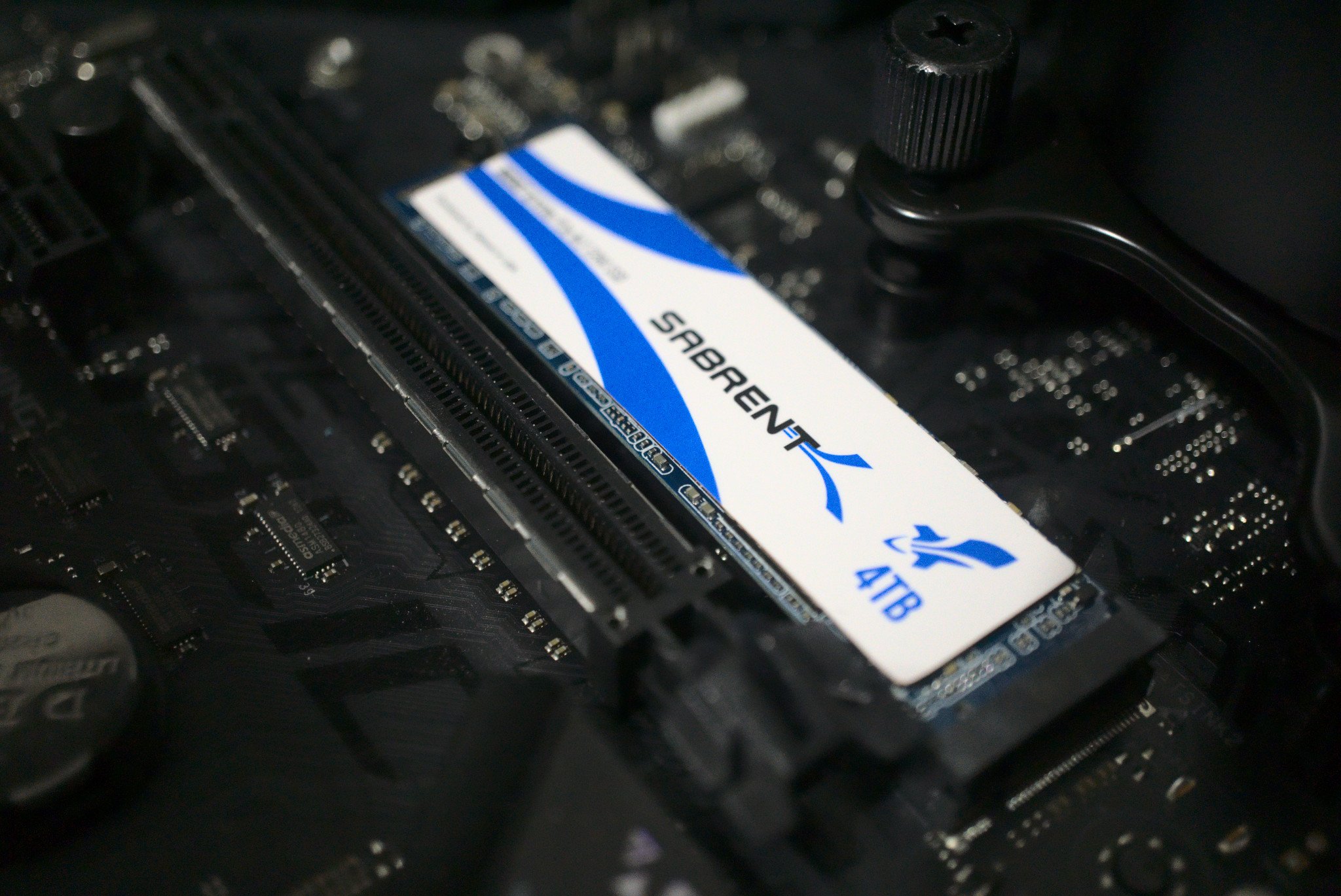Best answer: The best setup for most is a combination, where the solid-state drive (SSD) boots Windows and most used applications, and the hard disk drive (HDD) is used primarily for mass storage.
- Best NVMe SSD: Samsung 970 EVO Plus (From $75 at Amazon)
- Best budget NVMe SSD: Sabrent Rocket Q (From $70 at Amazon)
- Best 2.5-inch SSD: Samsung 860 EVO (From $60 at Amazon)
- Best HDD: WD Black (From $56 at Amazon)
What's the difference between the two?
In its purest form, an SSD is flash storage and has no moving parts whatsoever. As a result, they're smaller and take up less space in a PC case, in some instances even mounting directly to the motherboard. SSD storage is much faster than its HDD equivalent.
HDD storage is made up of magnetic tape and has mechanical parts inside. They're larger than SSDs and much slower to read and write.
Why use an SSD?
If you're building a PC for any purpose, you're going to want speed. If you only have HDD storage in your machine, then speed isn't something coming your way. Windows will take longer to boot up, applications will take longer to load, and files will take longer to open and save.
The beauty of an SSD is that this waiting time is dramatically reduced, even on cheaper drives, when compared to HDD. Anything you load on it will perform actions much quicker.
One of the best uses for an SSD in a PC is as a boot drive. This means installing a small-ish capacity drive on which your Windows 10 operating system will live and boot up from every day. By doing this, your PC will boot up and be ready to go in a flash. You can also put your most frequently used software on there for a similar effect.
The lifespan of an SSD isn't as long as that of an HDD, but you can certainly use an SSD as your only drive in a PC. Many laptops only have SSD storage, for example. You're not looking at a short-term life, but compared to HDD storage, it is reduced. SSDs don't handle being written to as well over time, but a boot drive wouldn't suffer this.
SSD prices have come down a lot in recent times, too, with the price per gigabyte much lower than it once was. Large capacity drives are still expensive, as are the highest performing ones, but generally speaking, they're more affordable than ever.
A note on PCIe 4.0 SSDs
If you're using the AMD platform, you might be able to use the new-gen, absurdly fast PCIe 4.0 SSDs. These are currently the fastest consumer drives on sale.
However, unless you're using both a Ryzen 3000 processor and the AMD X570 chipset on your motherboard, you won't be able to take full advantage.
Sabrent Rocket
Take full advantage of the new, fast PCIe 4.0 SSD with the Sabrent Rocket and get up to 5,000 MB/s read speeds and 2,500 MB/s write speeds.
If you are, something like a Sabrent Rocket is both great value and incredibly fast.
Why use an HDD?
The best case for HDD is mass storage. This type of drive is cheaper than SSD and available in some quite massive sizes. Have a lot of games or media to keep on your PC? No problem, you can get one or more drives over 1TB in size for a fraction of the cost of their SSD equivalents.
PC cases usually have space for more than one drive, meaning you can stack up as much mass storage as you can stash, and your budget will allow.
Price per gigabyte is still much less than SSDs, and large capacity drives won't take all your money. An efficient system would have an SSD to boot Windows from and one or more HDDs for mass storage.
Our recommendation
Our ultimate recommendation is to opt for a mixed system with HDD mass storage and an SSD boot drive for your Windows 10 install. This way, you'll get a balance of price, performance, and space, and you'll have a well-rounded machine for all occasions. If your storage requirements are smaller, an all SSD system is the way to go.
If you can have an NVMe drive in your PC, then these will yield the best performance, and thankfully aren't that expensive anymore. Our ultimate recommendation is the Samsung 970 EVO Plus, thanks to its reliability, insane performance, great warranty, and reasonable price.
Best SSD
Samsung 970 EVO Plus
The best SSD money can buy.
If you were building a PC in 2019, there's a strong chance you have support for NVMe drives on your motherboard, and this is the best of the bunch. Insane read and write speeds meet proven reliability, user-friendly companion software, and a stellar warranty.
If you're looking to get some of that NVMe performance on a budget, you can also do that with the excellent Sabrent Rocket. It's not as fast as a Samsung SSD, but it costs a good chunk less.
Best budget NVMe
Sabrent Rocket Q
Excellent performance at a low price
This is an excellent SSD, especially at the price, and a definite upgrade from an HDD or a SATA SSD.
For mass storage, whether you go for a 2.5-inch SSD or an HDD, these are our top recommendations. Both are from well-respected brands, are reliable products, and won't run away with your wallet.
Best 2.5-inch SSD
Samsung 860 EVO
Samsung quality, lower price
If you're looking for an excellent 2.5-inch SSD for a laptop or desktop, this is it. You get excellent performance, a great warranty, and an affordable price. Great for all-purpose use.
Best HDD
WD Black
Store all of the things
This is an excellent HDD available in some quite massive storage sizes, which makes it perfect for storing large quantities of files, less essential apps, and games.














0 comments:
Post a Comment